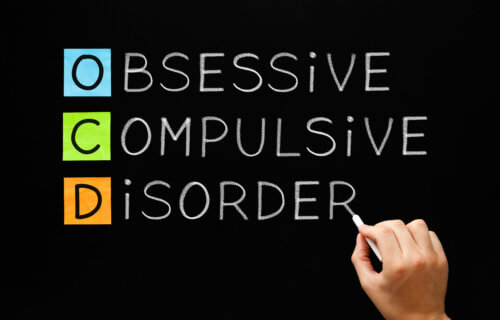PHILADELPHIA — Whether it’s constantly checking if the door is locked or excessively cleaning one’s hands, OCD can manifest itself in a variety of ways. While OCD symptoms are usually time-consuming, distressful, and can interfere with someone’s quality of life, a new study finds behavioral therapies such as exposure and response prevention (EX/RP) help “retrain” the brain to overcome obsessive-compulsive disorder.
While it has been unclear how exactly EX/RP helps alleviate OCD, researchers from Columbia University and the University of Michigan revealed EX/RP training reshapes brain activity to foster stronger cognitive control.
OCD typically affects a patient’s functional brain activity in three neural networks known to participate in cognitive control. Those networks are the frontoparietal network (FPN), the cingulo-opercular network (CON), and the default mode network (DMN). This latest study saw 111 adolescents and adults with OCD receive either EX/RP, which is designed to build coping skills for patients via gradual exposure, or more traditional stress management training as a control treatment.
Next, all participants underwent magnetic resonance imaging (MRI) while performing a cognitive task. Sure enough, OCD patients receiving EX/RP displayed strengthened connectivity between the cognitive control networks unseen among those given stress management classes.
Senior author Kate Fitzgerald, MD, at Columbia University, says this study “is important because it shows how EX/RP improves brain function to treat OCD. Specifically, EX/RP improved connectivity of brain circuits underlying cognitive control, the ability to adjust the repetitive thoughts and behaviors,” in a media release.

Researchers leveraged the expertise of study co-author Adriene Beltz, PhD, from the University of Michigan, allowing them to make use of a sophisticated new analysis technique.
“This allowed us to ‘see’ patient-specific brain changes with EX/RP that we were not able to uncover previously when using an older type of analysis that averages out brain differences between patients,” Dr. Fitzgerald explains.
Moving forward, Dr. Fitzgerald is planning on conducting another study using a cognitive training video game to exercise brain circuits for cognitive control before patients even begin EX/RP therapy.
“We hope this pre-therapy training will exercise the brain to help children respond more fully to EX/RP so they can overcome OCD,” the researcher adds.
“This study provides an important and clear example of how our increasing understanding of the functional organization of brain circuits can be harnessed to develop highly targeted therapies and to measure their impact both on the distressing symptoms of having OCD as well as the underlying brain circuits affected by the disorder,” concludes Cameron Carter, MD, editor of the publishing scientific journal.
The study is published in Biological Psychiatry Cognitive Neuroscience and Neuroimaging.
You might also be interested in:
- No, the human brain cannot ‘rewire’ itself, surprising study explains
- LSD the cure for OCD? Study reveals potential benefits of using psychedelics
- ‘Zapping’ the brain could be pain-free way to get rid of OCD, dangerous addictions

